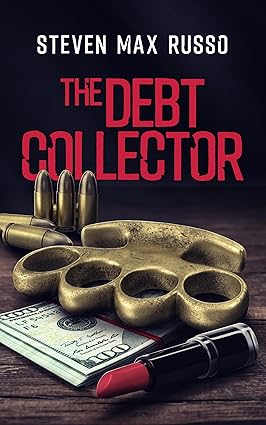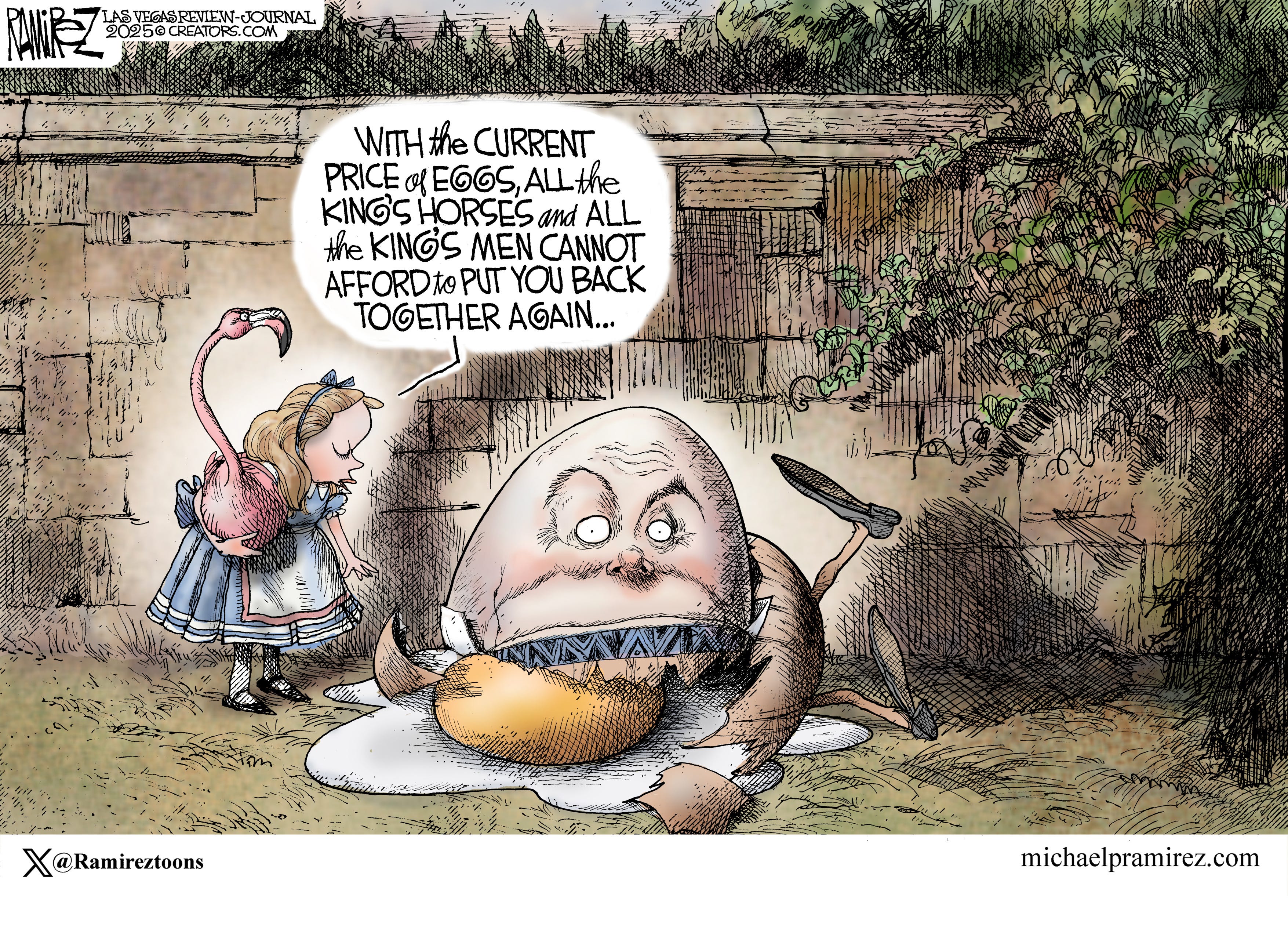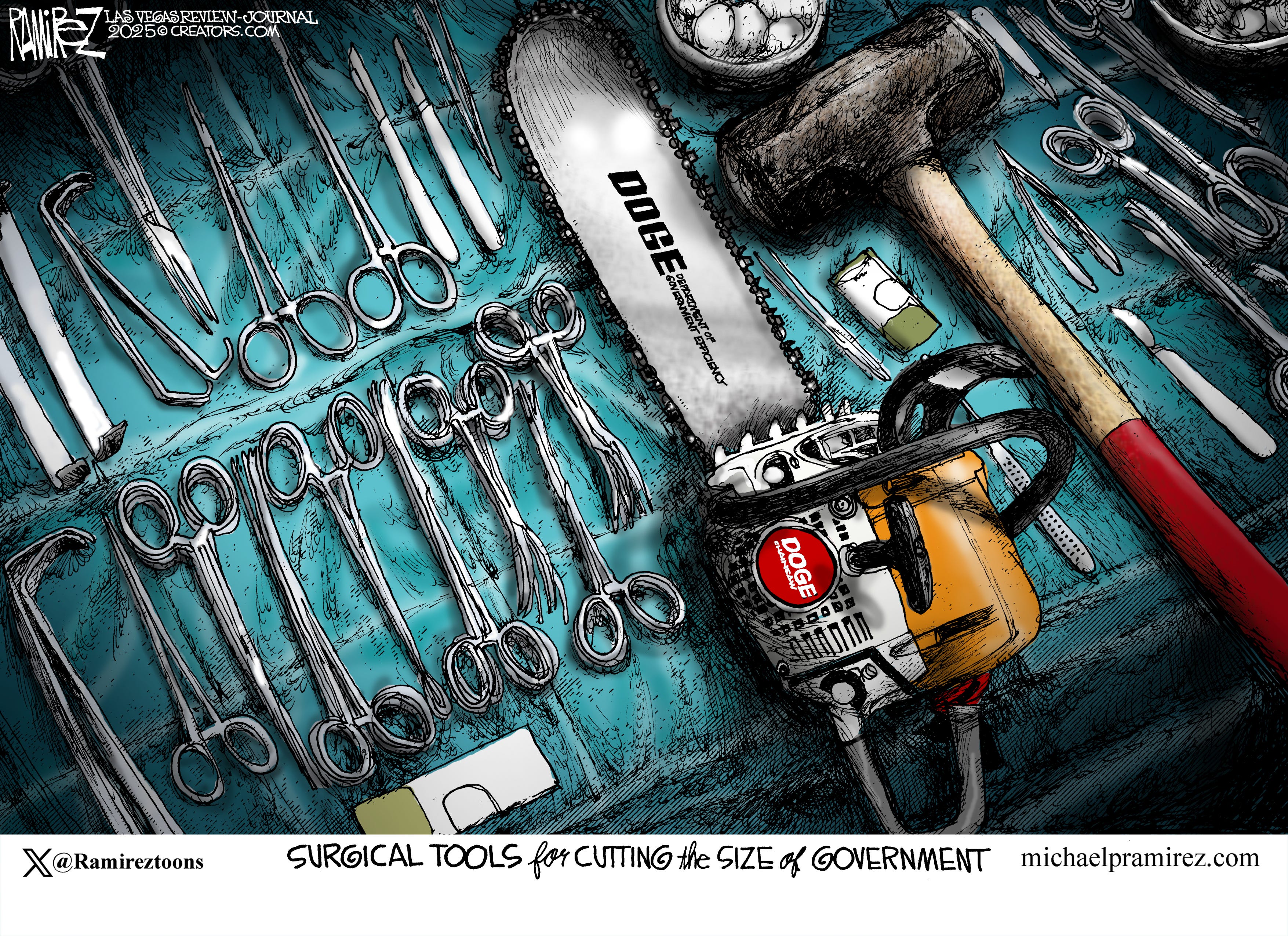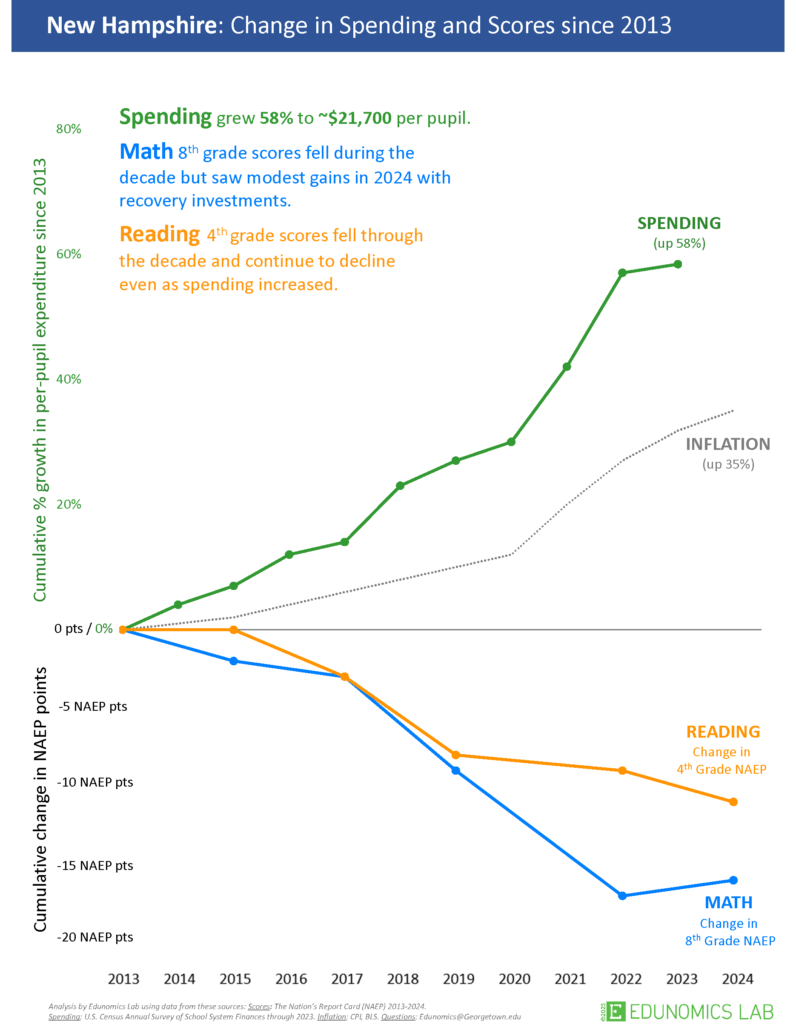I've been a fan of Sabine Hossenfelder for a while for her clear, and sometimes provocative, views on physics research. But I admit I did not see this coming:
Note that by "academia", Sabine is specifically referring to taxpayer-funded research carried out by academic institutions. Which, she argues, has the pitfalls and fatal conceits that (yes) Hayek pointed out decades back about all central planning. (She does this without explicitly invoking the man, but come on.)
This doesn't mean I agree with her on everything, but it's nice to see her so eloquent (and, IMHO, correct) on this. If you have a spare 20 minutes or so to watch the video, check it out.
Also of note:
-
And is Pravda on the Piscataqua next? The Issues & Insights Editorial Board can't seem to believe its own collective eyes: Did Jeff Bezos Just Kill Karl Marx On K Street?
Amazon founder and owner of the Washington Post Jeff Bezos announced Wednesday that change is coming to the paper’s opinion pages. Going forward, they will be supporting and defending the “two pillars” that are “right for America,” “personal liberties and free markets.” It was helpful for those who oppose the change to identify themselves as enemies of personal liberties and free markets.
Bezos also said that “viewpoints opposing those pillars will be left to be published by others.”
I got a chuckle from Reason's Robby Soave's reaction:
Hey, that's our job!
There's also some commentary from Reason editor Katherine Mangu-Ward. I'm sure that both Robby and Katherine will agree that competition generally works to the benefit of consumers.
Note: Pravda on the Piscataqua is how I've resolved to refer to our local paper until further notice. Today's online edition features a column from Portsmouth State Rep Gerald W.R. Ward, which muses on the "Sons of Liberty Bowl", currently at the Museum of Fine Arts in Boston.
The Sons of Liberty Bowl (often shorted to just Liberty Bowl) commemorates a courageous decision by the Massachusetts House of Representatives, which refused to bend the knee to King George III when he demanded that they retract the letter they had written to the other colonies protesting the Townshend Acts. They voted 92-17 “not to rescind” that letter, and to let it stand. Revere’s bowl is dedicated to the “Glorious 92” members of the House who held their ground and spoke truth to power, declaring that their votes were cast with a “strict regard to Liberty and the Conscience of their Constituents.”
In 2025, we must speak out against the people who are attempting to do an end-run around those hard-earned rights, roll them back, and replace our Constitution with a monarchy, dictatorship, or even a theocracy. Let’s remember Paul Revere and the Glorious 92 and not let those temporarily in power tarnish the legacy of the Sons of Liberty Bowl in their attempt to re-write and destroy American history, democracy, and democratic institutions. We defeated a monarchy once; we can do it again. Let us remain undaunted and continue to be the beacon of liberty for the world, not the supporters of insolent would-be kings and autocrats.
I'm not a Trump fan, but this is unhinged. And makes me wonder if, like those Boston patriots he invokes, Gerald W.R. Ward is ready to embrace secession.
If not, he's just grandstanding.
-
Specifically, dangerous to your finances. James Freeman looks at Washington’s Most Dangerous Departments.
Fans of big government seem to have largely abandoned the effort to argue that U.S. taxpayers ought to be funding transgender operas in Colombia or DEI programs in Serbia. But the Beltway ethos holds that the Trump effort to cut government waste must be countered. Therefore while many media folk criticize the manner in which Trump adviser Elon Musk encourages federal efficiency—or question the accuracy of his posts on his media platform, X—some say his stories of taxpayer abuse are true but already widely known and therefore not news. A new government report illuminates this last phenomenon and underlines perhaps the greatest need for reform. How can Team Trump wring out of the federal budget inexcusable waste that, years after its discovery, has continued to be tolerated by official Washington?
Recently this column noted the astounding levels of improper federal payments estimated not by Messrs. Trump and Musk, but by Democrats on the House Oversight Committee. Their estimates run up to more than $200 billion a year. Also, months before Mr. Trump’s election last year and long before the creation of DOGE, Congress’s Government Accountability Office estimated that annual federal fraud losses could be north of $500 billion.James notes the issuance of the GAO's latest report. Exceprt from that:
Since 2003, federal agencies have reported about $2.8 trillion in estimated improper payments, including over $150 billion government-wide in each of the last 7 years. These figures do not represent a full accounting of improper payments because agencies have not reported estimates for some programs as required. For example, we found that agencies failed to report fiscal year 2023 improper payment estimates for nine risk-susceptible programs.
The areas on the High-Risk List include programs that represented about 80 percent of the total government-wide reported improper payment estimate. These include two of the fastest-growing programs—Medicare and Medicaid—as well as the unemployment insurance system and the Earned Income Tax Credit. While agencies and the Department of the Treasury are taking some steps to address this issue, much more needs to be done to control billions of dollars in overpayments and prevent fraud. Implementation of GAO's recommendations by agencies and the Congress would help achieve better program integrity.
Another thing that one would hope is on Elon's reading list. And moved quickly to his "Holy crap, let's do something about this" list.
-
So the kid was sad? Can't blame him, really. Despite his headline, I think Ronald Bailey is actually the sad one: Unvaccinated kid sadly dies of measles in Texas.
An unvaccinated child died of measles in West Texas, officials said Wednesday, marking the first death in an ongoing outbreak of the highly contagious respiratory illness. The child was one of 124 confirmed cases in this vaccine-preventable outbreak. Eighteen others have been hospitalized. The loss is a tragedy; the measles vaccine is 97 percent effective in preventing disease.
"It is no coincidence in my mind that [Robert F. Kennedy Jr.] gets confirmed to be secretary of [the Department of Health and Human Services (HHS)], and immediately we have a measles outbreak," said Polly Tommey in an interview with NBC News. Tommey is the programming director of Children's Health Defense, the anti-vaccination advocacy group founded by RFK Jr. Tommey believes that the measles-mumps-rubella (MMR) vaccine caused her son's autism.
Indeed, Tommey could be right; it is perhaps no coincidence. After all, the already vaccine-hesitant parents of the infected kids in Texas live in a culture influenced by RFK Jr.'s long and sordid history of kooky and dangerous anti-vaccination agitation.
We were doing pretty well at wiping out measles but progress seemed to stall about 25 years ago. I imagine that's due to kooks like Junior and Polly Tommey.
-
We've pretty much given up on Matthew 7:1 So Jonah Goldberg advises Judge Trump’s Motives, Not Just His Methods. It's long, but convincing, and here's the bottom line:
This is not normal. Trump’s program isn’t really ideological and certainly not “conservative” in any traditional sense. If Trump were overseeing the imposition of Reaganism, or even some ideological agenda I disagreed with, those arguments would have greater purchase with me. But MAGA at its best is a pretext, and more often it’s not even that. This is the faux-ideology of one person, one person’s vanity, grievances and personal glory.
That’s why I think the “why” of it all is much more important than debates about “can.” Sure, he can do a lot of things, because the Founders really didn’t envision someone like Trump as president. They envisioned the man who presided over the Constitutional Convention, George Washington. At CPAC last week, Trump noted that Bill O’Reilly said that Trump was a better president than George Washington. To which Trump responded, “I love beating George Washington.” The audience swooned.
For heathens out there: Matthew 7:1.
| Recently on the book blog: |


![[Amazon Link]](/ps/asin_imgs/1119989019.jpg)

![[Amazon Link]](/ps/asin_imgs/B01JNAZKFM.jpg)
![[Move Fast and Break Things]](https://imgs.xkcd.com/comics/move_fast_and_break_things.png)




![[Amazon Link]](/ps/asin_imgs/B01MFBAO4O.jpg)





![[Amazon Link]](/ps/asin_imgs/B075SCD7H1.jpg)

![[Amazon Link]](/ps/asin_imgs/1641770481.jpg)

![[Amazon Link]](/ps/media/saint-joan-arc-kcups.png)



![[Amazon Link]](/ps/asin_imgs/B09VHWP6T8.jpg)

![[Amazon Link]](/ps/asin_imgs/B0DGP3LZWT.jpg)




![[Amazon Link]](/ps/asin_imgs/168451228X.jpg)


![[The Blogger and His Dog]](/ps/images/me_with_barney.jpg)



